University Researchers Tackle Hot Topics Using Lantis Awards
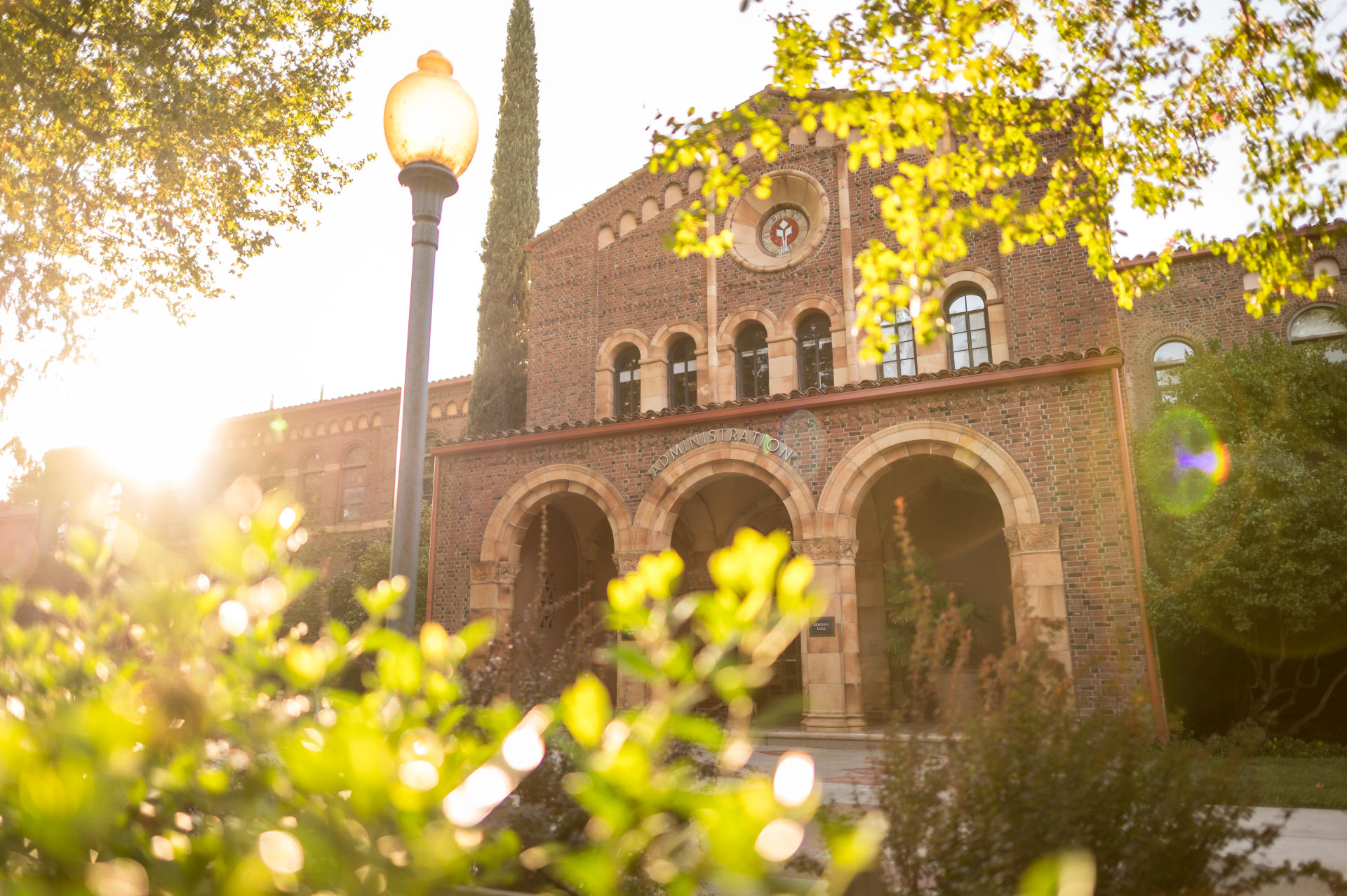
Every year, Chico State faculty are responsible for driving great advancements in their fields. From relationship diversity to the consequences of disappearing groundwater to fractal influences shaping our coastlines, the achievements of our faculty continue to promote student success, community engagements, and scholarly and creative activity.
The University has named four professors as recipients of its annual Lantis Endowed University Chairs, selecting them from a competitive pool of outstanding and worthy applications. Economics professors Janine Stone and Anita Chaudhry, mathematics professor Michael Coons, and psychology professor Marie Lippmann will each receive a financial award to support their research and student-centered learning projects.
“Our 2024 Lantis Chair honorees represent among the very best in innovation and student engagement while pushing the edges of their discipline,” said University President Steve Perez. “Please join me in congratulating them and thanking them for the richness they add to the academy and to Chico State through their passions and expertise.”
Professor David Lantis was a faculty member of the Department of Geography who understood that private giving would help enrich the University’s teaching and learning environment. He and his wife, Helen, donated $2 million to endow University chairs in their name, to be awarded annually.
Endowments of faculty positions help grow and enhance opportunities for students and provide a firm foundation for the people whose work transforms our communities, region, and the world. The awards range from $20,000 to $40,000 (as appropriate to the project), which can be spent on release time, travel, equipment, student stipends, or a summer salary.
Meet the Recipients
Working Toward Water Resilience
Janine Stone and Anita Chaudhry have a shared vision: water resilience for rural California.
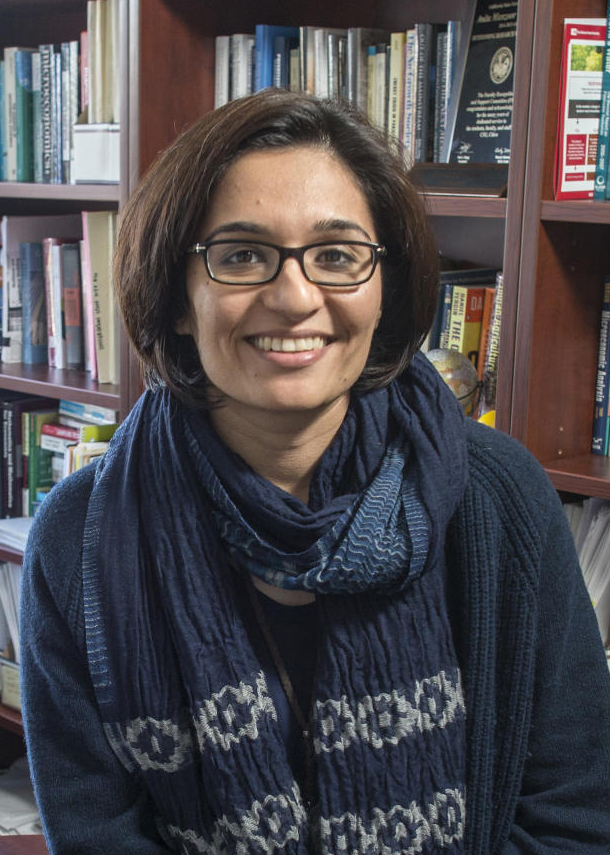
Since 2014, nearly 6,000 domestic wells in the state have gone dry, with over half of them during the severe drought of 2020–22. While millions of dollars in emergency funding have been allocated to address the immediate problem, long-term solutions are unknown even while recurring droughts are increasingly likely due to climate change.
Together, the economics professors have outlined a research project that will develop a framework for evaluating local costs and benefits of alternative water supply sources for households with dry or declining wells. They will recruit Chico State students to participate in the research to help prepare the next generation of researchers and policymakers in this growing field. They also plan to use the research framework to secure grant funding to continue the work moving forward.
“Our work for Butte County drought assessment made us realize that a comprehensive study is needed to estimate the damages to rural Californians, especially those in foothill areas, who face uncertain, unsafe, and inadequate water supplies,” they wrote in their proposal.
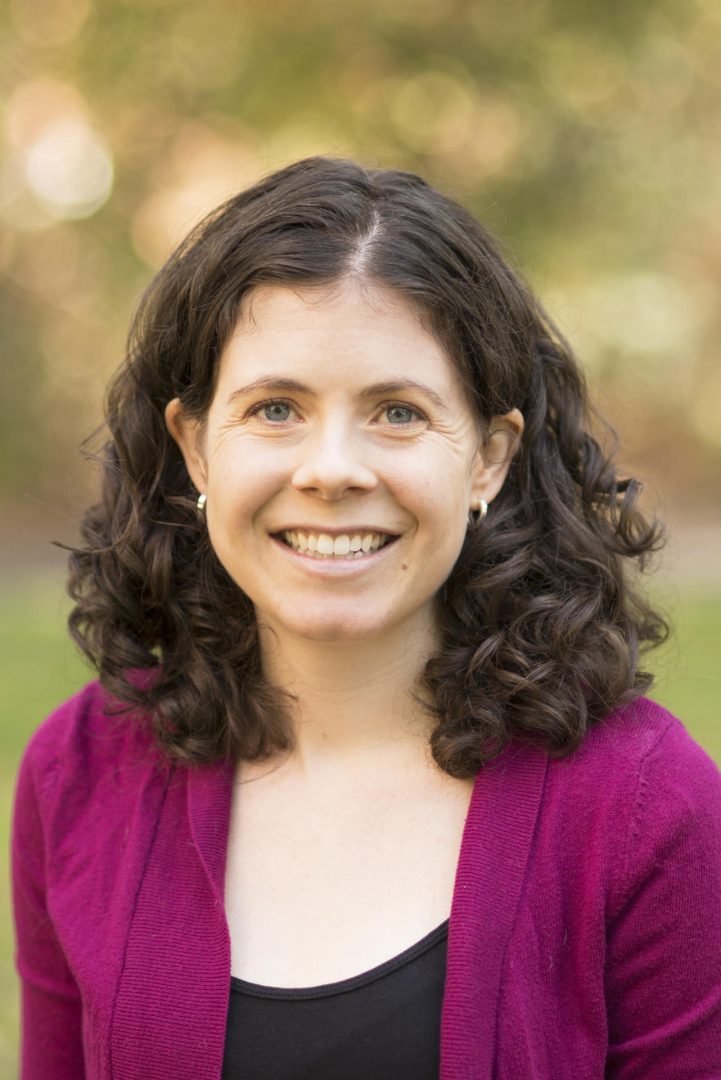
A continuation of work they initiated in the last year, their research will look at both tangible expenses—such as storage tanks, trucking in or hauling water, and drilling or deepening groundwater wells—and the intangible costs, which are the non-priced but very real psychological impacts associated with not having secure and safe water, and having to ration one’s water supply or rely on the neighbor’s hose for household water. For their research, they’ll be focused on the larger Sacramento Valley, including Butte, Glenn, Tehama, and Yolo Counties.
Chaudhry and Stone have extensive experience studying drought and related issues. Stone has been focused for many years on the welfare implications of drought and conservation strategies for municipal water users, while Chaudhry was focused on water markets for agricultural water transfers and economic development.
“In our previous experiences with community-based research, we found that stakeholders are very excited about the prospect of local Chico State researchers solving local problems,” they wrote in their proposal. “We will bring prestige to Chico State by showing that the fact our community is all-too familiar with disasters makes us uniquely suited to tackling the environmental problems that, unfortunately, are likely to affect other California counties in the future.”
Stone is an associate professor of economics. She has a PhD in agricultural and resource economics from Colorado State University and a BA in economics and political science from University of Nevada, Reno. She has taught at Chico State since 2015.
Chaudhry is a professor of economics. She has a PhD in economics from University of Wyoming, an MS in agricultural and resource economics from University of Connecticut, an MA in economics from University of Southern California, and a BS in economics from Lahore University of Management Sciences in Pakistan. She has taught at Chico State since 2007.
Making Sense of Waves, Wind, and Other Fractal Factors
Have you ever sat and stared at the California coastline and wondered how it came to be?
Michael Coons has, perhaps for more hours than he’d care to admit. He can’t help it—his mathematical mind flutters among considerations for how patches of the beach resemble other patches, how the boundary between land and sea takes large and small bends at large and small scales, and how the boundary is not finite but infinite. It sparked inspiration for a research project, one that would focus on how relatively simple processes like waves hitting the beach can take the most mundane objects and produce rich structures with a long-range order.
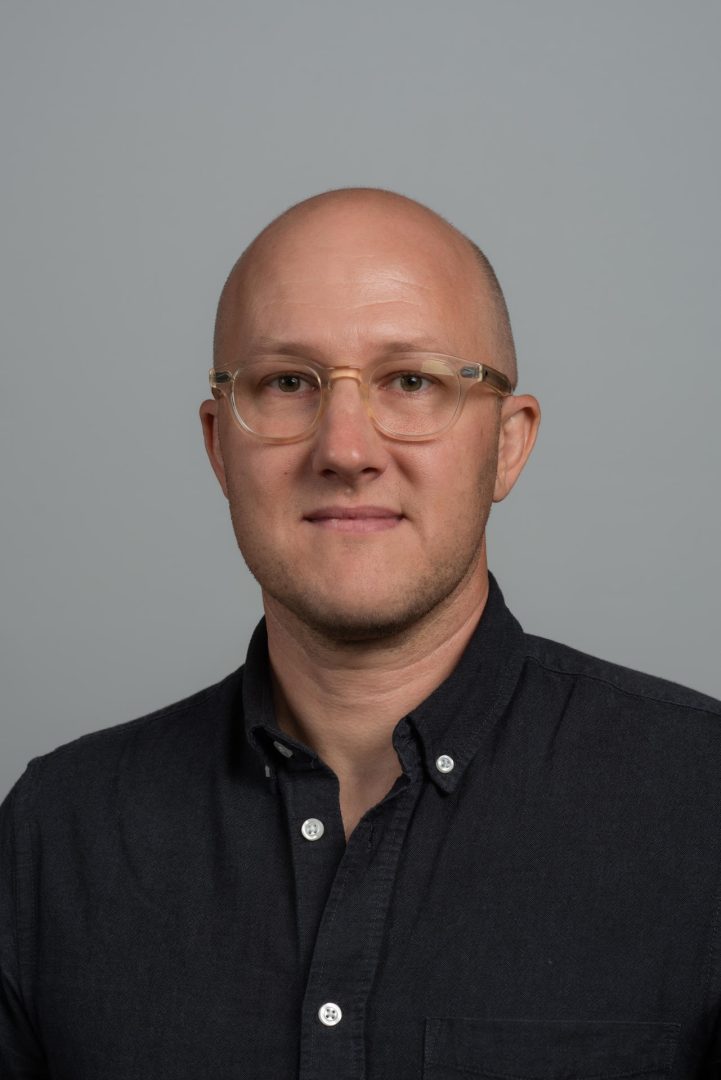
For the next two years, he plans to use fractal and self-similar structures to explore to what extent the recursive nature of a sequence can impact its arithmetic and algebraic properties, and to what extent a simple process can appear random. He’ll integrate both colleagues and students into the work with a goal of strengthening the culture of undergraduate mathematics research at Chico State, and plans to publish several papers and eventually a book on the Thue-Morse sequence—a paradigmatic object in the areas of fractal geometry, self-similarity, computer science, and number theory.
“Classically, mathematics is largely concerned with objects for which the methods of standard calculus can be applied—objects such as sequences, sets, or functions that are not smooth enough (such as a coastline), are often ignored and considered pathological,” he wrote in his proposal.
Throughout his career, Coons has engaged undergraduate and graduate students in research while publishing papers with mathematicians of all levels, from students to some of the world’s top experts. He hopes that this project will further not only his own positioning as a mathematics expert but help demonstrate that Chico State has perhaps the strongest and most cohesive mathematics group of any CSU campus. As an added bonus, he hopes to motivate students to enroll in the department’s upcoming master’s program in mathematics.
Coons holds a PhD in mathematics from Simon Fraser University in British Colombia, an MS in mathematics from Baylor University, and a BA in mathematics from the University of Montana. He has taught at Chico State since 2022.
In Pursuit of Better Understanding and Awareness of Relationship Diversity
As Marie Lippmann has continued her studies into relationship diversity in recent years, one topic continued to bubble to the surface.
Consensual nonmonogamy (CNM) refers to relationship configurations in which all the involved individuals agree to the possibility of extradyadic sexual or romantic expression, essentially engaging in a relationship with someone other than a primary partner. One in five single people reported engaging with CNM at some point in their life, and between 3 and 7 percent of partnered individuals are engaging in a CNM relationship.
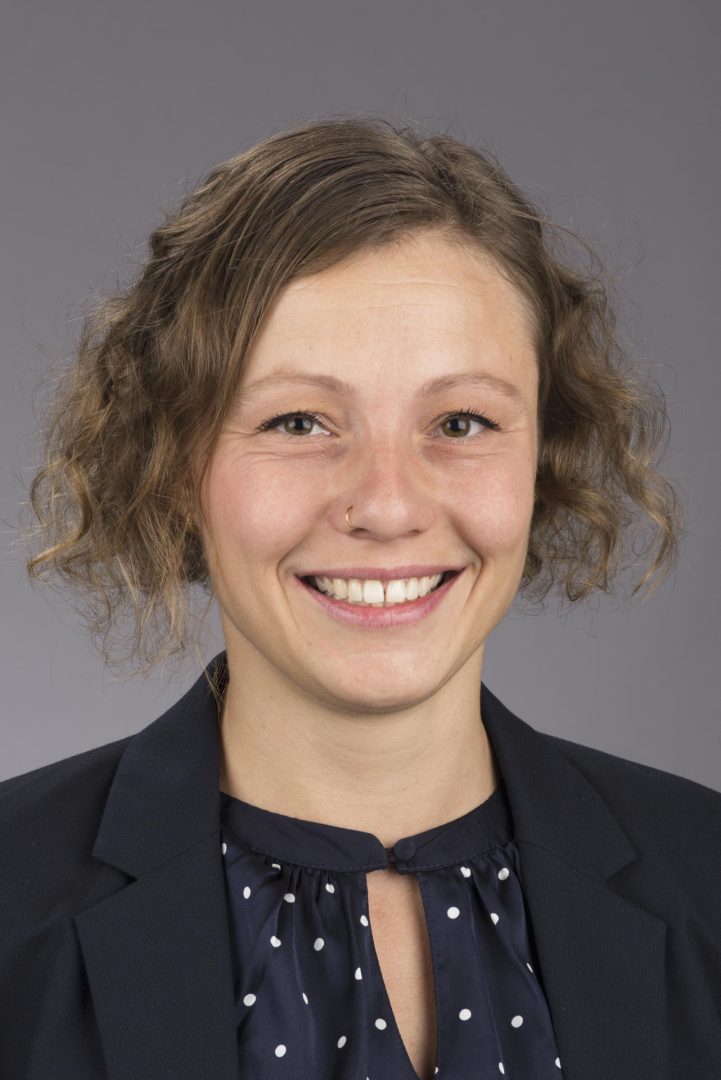
Lippmann strives to conduct research that will develop a theoretical framework for relationship identity development with a focus on such relationship structures to advance this important emerging area of research in relationship diversity, while giving voice to the unique perspectives of this group and review outcomes through their own lens.
“Pioneering research on CNM-related topics is only starting to emerge and reveals persisting notions of regulation, discrimination, and stigmatization of identifying individuals even though empirical evidence shows that CNM partners report similar levels of love and commitment as monogamous partners,” she wrote. “With this project, I aim to contribute to a better understanding of CNM identity development and facilitate the inclusion of non-normative relationships into academic and societal considerations about equity, diversity, inclusion, and social justice.”
Lippmann has been proving herself as a growing scholar in the field of relationship diversity. Her research on emerging adults’ views on consensually nonmonogamous parenting, effects of relationship structures in plurisexual parents, and the investigation of sexual identity development milestones in young adults have been featured nationally and internationally.
For this project, she will enlist student research assistants to conduct the research and ultimately draft papers and present at conferences on the subject. As young adults, including college students, are increasingly interested in CNM and explore it in their own lives, she expects this project to be of particular interest to the student research assistants who will support her in conducting the study and eventually draft papers and present at conferences on the topic to make relationship diversity better understood on a broad scale.
Lippmann holds a PhD in psychology from the Department of the Psychology of Learning and Instruction from Dresden University of Technology, an MS in educational psychology and clinical psychology, and a BA in psychology from the University of Technology in Germany. She has taught at Chico State since 2017.


